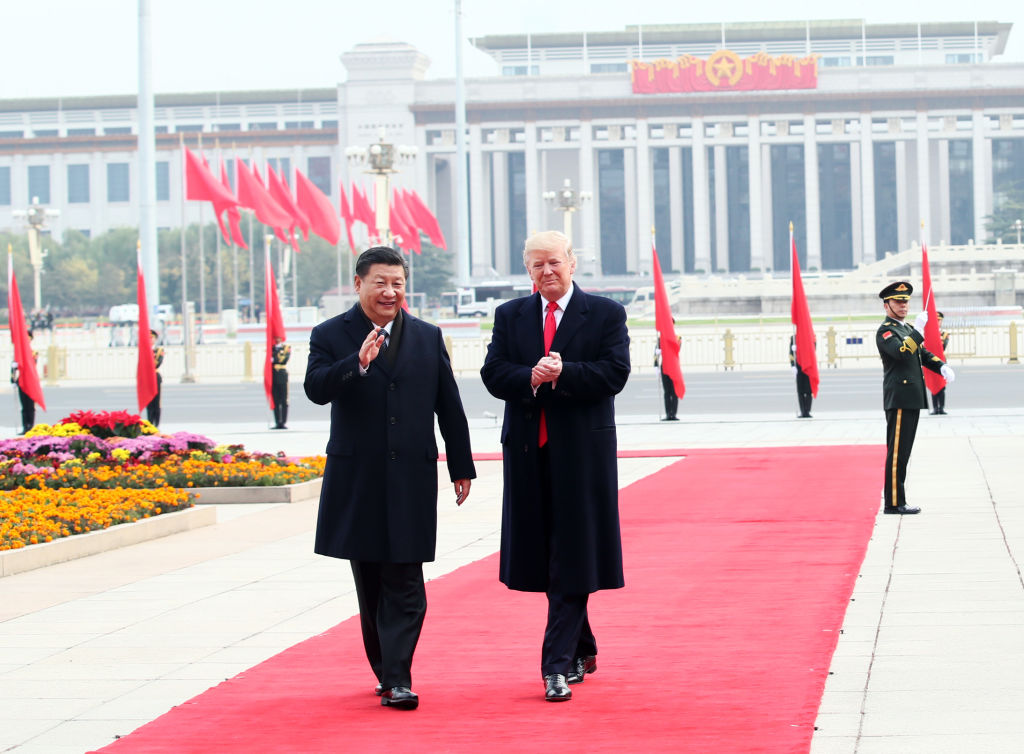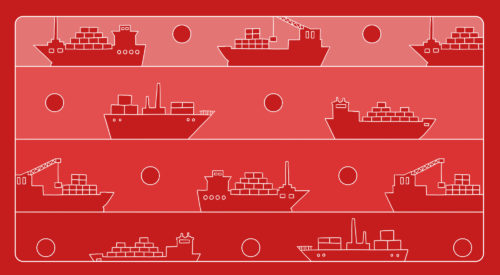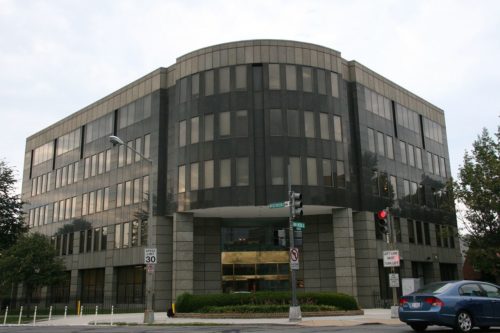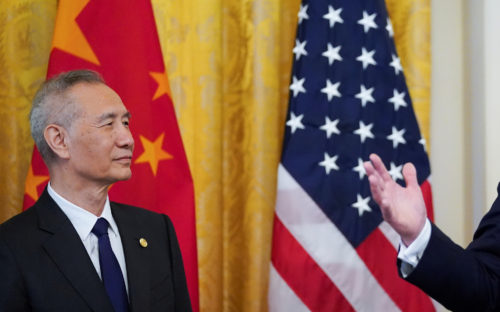Trade war, day 47: ‘No time frame’ for end of dispute, Trump says

On August 23, a second tranche of $16 billion in tit-for-tat tariffs is set to activate, bringing the total of taxed goods in the U.S.-China trade war to $50 billion.
At the same time, the Trump administration is holding public hearings in Washington, D.C., on plans to tax another $200 billion in Chinese imports later this year.
- Companies overwhelmingly said the tariffs would “cripple their businesses and raise prices on everything from bicycles to car seats to refrigerators,” the New York Times reports (paywall), adding, “The United States is no longer equipped to produce many materials that they depend on for their products.”
- “Opening witnesses from the bags, textiles and apparel industries were unanimous in their praise for Chinese workers’ craftsmanship in a sector that has virtually no bearing on matters of national security, one of the Trump administration’s buzzwords in justifying the aggressive tariffs,” the South China Morning Post reports.
No date has been announced for the rollout of that round of tariffs, which would be the third. There are five more days of public hearings, during which American companies can testify and attempt to influence the final list of taxed products.
President Donald Trump spoke to Reuters yesterday, and had a few things to say related to China:
- “No. No time frame. I’m like them, I have a long horizon,” Trump said when asked whether he had a time frame to end trade disputes with China. A Wall Street Journal report last week (paywall) suggested that officials on both sides had a four-month time frame in mind to end the conflict, leading up to expected meetings between Trump and Xi Jinping at international forums in November.
- But, “maybe. I’m not sure that it’s been set up yet. We’ll see” is all Reuters got from Trump when it specifically asked about the possibility of meeting with Xi in November.
- “I don’t anticipate anything coming out of it,” Trump said of the lower-level negotiations set to happen this week.
- China helped with North Korea “very much initially,” but “much less now…because of trade,” Trump claimed.
- “I think China is manipulating their currency, absolutely,” Trump alleged.
China was not happy about the return of the infamous “manipulation” charge.
- “We’d like to stress that [the exchange rate] is market-driven. We won’t use policy to devalue the yuan and we won’t use the exchange rate as a weapon to react to external pressures from trade conflicts,” Li Bo, the director of the monetary policy department within the People’s Bank of China, said, South China Morning Post reports.
- China’s currency has devalued recently, but many economists have pointed out that it remains close to the market’s expected range and is not artificially cheap.
- “In reality, the central bank has worked hard to avoid a rapid depreciation in yuan against the dollar, because a sharp fall would amplify capital outflow pressures and generate fresh financial risks for the Chinese economy,” the SCMP writes.
More trade war reporting:
- Trump is “all-in, 100 percent on China”
Trump sees a war he can win / Axios
A member of congress who “recently spoke at length with Trump about trade” tell Axios that Trump “thinks he’s right and he thinks he’s winning,” and “he’s resolved to be the guy that changes the world trading system. … He’s willing to take some pain to do it.”
Senior administration officials, meanwhile, appear convinced that Beijing is “shaken up” by the trade conflict, and so Trump is “all-in, 100 percent on China.” - China supports economy through bonds and infrastructure
China gives banks incentive to buy bonds to support public investment push / SCMP
“China’s financial regulators have reportedly given commercial banks a new incentive to boost investment in local government bonds as Beijing tries to stabilise economic growth through increased infrastructure spending. Regulators will remove a requirement that banks hold provisions against the possible default of provincial and municipal government debt that they purchase, state-run China Securities Journal reported on Tuesday, citing several unnamed sources.”
China goes back to old habits as government pumps up spending on infrastructure to boost economic growth / SCMP
“China has given the go-ahead to a series of major urban infrastructure projects after a 12-month pause in a return to the investment-driven policies for spurring growth that it had promised to leave on the shelf.” - Australia
Australia has a lot to lose in the US-China trade war / CNN
“Australia has gone more than a quarter of a century without a recession, and analysts say China is a major reason for that winning streak…Australia’s central bank governor has warned that ‘something going wrong in China’ is one of the largest economic risks for Australia.” - Strategy
A major hurdle in trade talks: US and China ‘play by different economic rules’ / SCMP
Timothy Stratford, managing partner of Covington & Burling’s Beijing office and a former assistant US trade representative, says: “Arguing about who is following the rules and who is breaking them would not accomplish anything. But if neither team wants to change the rules it’s playing by, then you either have to stop playing with each other or you have to come up with new rules to reduce the harm that each team inflicts on the other.” - Stocks
US stocks futures tick higher ahead of China-US talks, Jackson Hole summit / CNBC
“With little economic data out at the start of this week, investors have been turning their attention to news surrounding the U.S. administration’s relationship with China and the U.S. Federal Reserve.”
Previously in The China Project’s trade war coverage:
Trade war, day 42: China to send low-level delegation in late August






